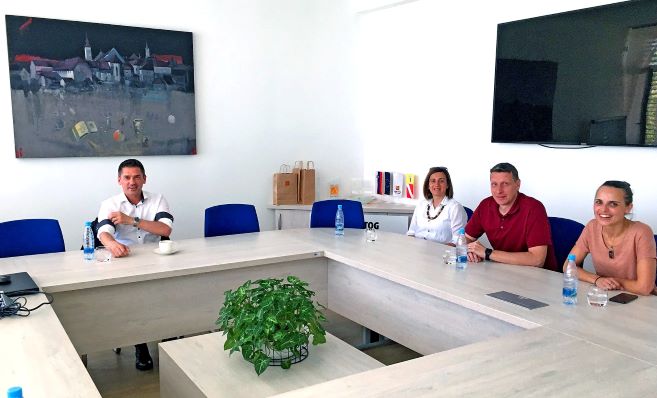Where to find the best staff?
Where are the job applicants? How will we get to the experts? These are questions that have been recurring over the past year, not only among HR professionals but also for business owners. Of course, we have them here at Bartog, too. Lana Novaković, Head of Human Resources at Bartog, will explain our plan in this area.
Lana Novaković
I have been in HR for just over 12 years and have been following the direction of trends in the labour market for a long time. I believe that the staffing issue we are now facing is inevitable. The situation we found ourselves in the human resources area after the corona-crisis was actually 7–8 years in the making, maybe even longer, and the trend of departures and shortages was visible year after year. But it escalated just after the corona-crisis. So why are we surprised today? Because the labour shortage is obvious and because it is not a situation that affects "just some", but all employers, all of Europe and beyond. What is the reason? Migration has never been more present, we are witnessing the Ukrainian crisis, which has further stimulated migration, people are leaving in search of a better life, for a better quality of life, and of course each individual has his/her own criteria as to what constitutes a better quality of life for him/her, and in which country he/she believes to be able to achieve it. And the demographic picture… Every year, national statistics show a trend towards fewer births, and at the moment this is just the beginning of the trend, but I believe that in 5–10 years' time this issue will be much more pronounced. The final reason for the labour shortage is the mismatch between the needs of the economy and the education system. This is a theme that has been present for the last 20 years, and is now more pronounced than ever. The needs of the economy are changing much faster than the needs of education, and this is a key problem. The era of digitalisation and agile organisations has seen private higher education boom, and they see their advantage in their speed of adaptation to the labour market and their willingness to adapt their programmes to the needs of the economy.
Where is Bartog in all this and is there a solution?
There are always solutions and situations like this encourage us to think creatively. We are building good organisational cultures, we have the opportunity to think about where we want to be as an employer and how to stand out. Certainly, given that we have grown by 80 staff in the last year and a half, I dare say we are doing something right. We as a group invest heavily in education and training, and our guiding principle is that it is a constant, a piece of the puzzle that leads us to success. It was this that got us thinking about how to recruit in the future and led us to set up the Bartog START programme.

The Bartog START programme is designed to link Bartog with secondary schools that train people related to our business – trade school, mechanics, car mechanics, autobody technicians, logistics, etc. We will approach the programme in a way to work with schools to set up mentoring programmes from the very beginning, assign a mentor to a student, and – through internships and summer work – give the students the opportunity to get to know Bartog and the workplace, thus ensuring to have employees at the end of their schooling, educated and prepared for the workplace. This programme is under construction and should be launched this autumn. That's why in May, together with our Director of Logistics, Mr Matjaž Aljančič, and our HR colleague Simona Tomšič, we visited the Novo mesto School Centre – our partner in this project. The problems with the practical part of the education have turned out to be one of the key ones – the programme we presented is supported by Novo mesto School Centre as they see great potential in it and look forward to preparing their students for work at an early age with our help.
The Bartog START programme follows trends in the labour market, so as well as building our future workforce through the school centres, we also want to give back to the local community. Learning and giving back to the local community is a great value of our organisation. But a good idea is not enough for success. The outcome of the programme will depend on the commitment of each individual involved. However, the support of the management is at maximum and it is up to us to recognise and develop the value. The interviews we have conducted with new hires have shown that as a company we are open to introducing new employees to the business, especially through the BUDDY programme, which stands for knowledge transfer. This is something we can be extremely proud of, because besides transferring knowledge, it brings employees together and builds a desirable and welcoming organisational culture. Step by step, our puzzle is coming together to build ourselves as an employer of choice and a modern employer. Of course we have room for improvement – but I am happy to see that we are finding it, because it is a sign that we will get better.
This entry was published in Bartog INFO No. 3, Summer 2022. Read the magazine HERE.